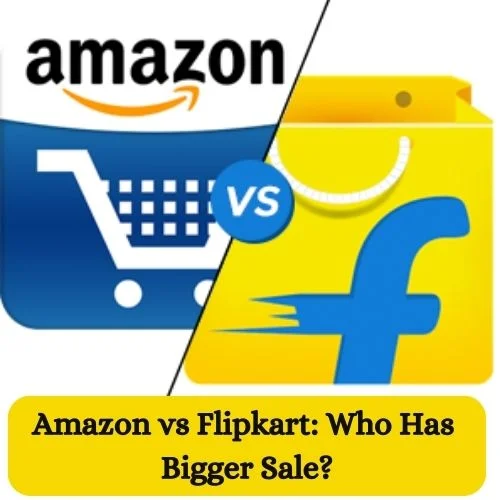The rise of e-commerce industry has seen phenomenal growth over the last few years around the globe. We have the flexibility to buy a diverse range of products through our smartphones or computing devices and get them delivered within hours and something in just a few days.
Products like groceries, medicines, toys, apparel, electronic devices, and a whole lot of various items can be found on these ecommerce platforms. The ecommerce industry is amplifying a major portion of the Indian economy and deriving a positive development of our nation.
In India and the globe, ecommerce companies have been providing better services, improving product offerings, and creating more jobs. They are also giving discounts, cashbacks, offers, and easy return policies to ease the experience of the customers. But looking closely, ecommerce has posed a challenge to the unorganized division of India that includes a brick-and-mortar business.
What can be described a ecommerce? And what is it all about?
When a business avails itself of a product or services by selling them online can be put to the category of ecommerce business. The technological advancements catered with globalization and digitalization of infrastructure and businesses, ecommerce have boomed into the heart and soul of every customer.
Companies like Amazon, Flipkart, Myntra, Nyka, Ajio, Ola, Uber, Swiggy, Zomato and many others have dived into these growing opportunities in India. But considering the culture and historical significance of India, our motherland has a huge inclination towards traditional systems of business that are more steered towards labor-intensive systems and in sectors like agriculture and many others.
Although our Indian Government has bolstered this traditional unorganized setup to a digitally backed economy, a lot more needs to be looked upon.
In any system, there should be an objective to gain and in this piece of information, we will look into the several effects of e-commerce in India, both positive and negative. We will analyze how ecommerce is posing a roadblock for traditional businesses in India. Along with these, we will notice how retailers and consumers are changing their mindset toward buying and selling with some key remedies for traditional businesses to tackle the strong growth of ecommerce.
The effect of ecommerce-
Both the positive and negative effects of e-commerce in India have demanded retailers and consumers to re-analyze the operations of business in India. One of the most driving factors of ecommerce is the convenience and flexibility it has been offering to the consumers. They are willing to pay extra bucks for services provided the products and the services are saving them some time. Whether it is early morning or late at night, products can be ordered with just a few taps away from the ecommerce platform.
Ecommerce businesses have reduced the energy consumption of consumers. Since they can order almost anything online, a lot of fuel is saved from traveling to the physical store. Ecommerce also reduced warehouse space and turned that into house goods for place near any retail stores. As a result warehouses consume less energy.
A significant amount of cost is reduced in ecommerce as companies do not have to deal with middlemen who used to handle distribution of the goods along with warehouse spaces for keeping the goods combined with several additional expenses. Inventories are managed impeccably in the ecommerce industry due to better business model and strategies. Some of these savings from these steps are forwarded to the consumers in the form of discounts or cashbacks.
The inventory management is handled by digital systems which tunes down the cost of operations in ecommerce. Since these divisions can be automated a lot of money is saved on the way.
But there are some drawbacks of ecommerce as it involves with the privacy of a consumer. With these websites, a consumer’s personal information is at the risk of getting collected. Due to the transactions being online, targeted advertisements can be directed towards the consumer. Since, this is a hindrance towards privacy policy, small-scaled ecommerce businesses need to be very cautious.
When it comes to online transactions, there can be a serious concern to security at times, while using your debit or credit card. While putting the credentials of the payment, third-party payment providers might come into the picture in times of weak security systems and tamper with the payment setup. The highest priority should be taken by companies and merchants when it comes to security for payments and personal information.
Due to a competitive market, merchants can be placed in front of bigger retailers that are providing a better price to the customers. There can be an issue towards profits for small businesses while setting an attractive price for the customers.
Buying products online also comes with more returns compared to when buying from a physical store. A lot of reasons can be the motive for the returns which may include not needing the products anymore, getting a damaged product or getting a better offer on the same product elsewhere. While a large retailer will not feel the cost of returns, a small-sized business will have a lasting effect on its profit margin.
The shift towards ecommerce-
When a business has been running for years before the digital age, those businesses might find it challenging to adapt to the current market flexibility. It also indicates that due to a cut-throat period of the market, large corporations of modern times also have to keep on innovating in order to stay on top in the market. In 2022, the valuation of e-commerce in India was about $74.8 billion.
There is something termed as ‘Vertical Integration’ that traditional businesses did for a long time when it came to legal advice, researching in the market, advertisements and many more such services. Now, companies outsource all these services like marketing, social media, research and others while dialing down the cost at a huge margin.
When it comes to traditional businesses, returns of a product have often been calculated at a loss. But in ecommerce the flexible return policy has validated the businesses staying sustained for a long period of time, provided they offer quality products and proper value to the customers.
Merchants can sell their products to different markets along with the local market with the help of ecommerce. Added to that micro and medium-sized businesses can sell their products seamlessly without any middlemen like vendors or distributors.
Ecommerce has come with stellar logistics and all-hours support to help local businesses. Automation has helped a lot of businesses to run even at the odd hours of the night. There is no scene of shutters down as everything is digital and put forward on a late to the digital screens of the customers.
Consumers have become tech-savvy and now they research a product over the internet, read other customers’ reviews and decide for themselves. Advertising has also changed significantly over the last couple of years.
What remedies can traditional business explore?
Traditional businesses can collaborate with each other to buy goods in bulk which will allow them to save at least 10% from their budget. There will also be some discounts for the goods if bought in bulk. These profits can be directed toward consumers, who will see the value behind the initiative. And a competitive edge will be created against the ecommerce companies.
Along with these traditional businesses should consider giving services like home delivery without any extra cost, easy financing options, coupons and cashback, and many similar things. The efforts being made will establish a long time relationship with the consumers. To back this up, using free product and service promotion on social media will drive a certain amount of organic advertisements.
We all have to accept that this is now the way of the world. There is always room for improvement and advancing certain systems will always be for the betterment of a business. The aim should always be to provide value to the customers and offer quality products. This will always ensure sustainable business growth in every test of time.















